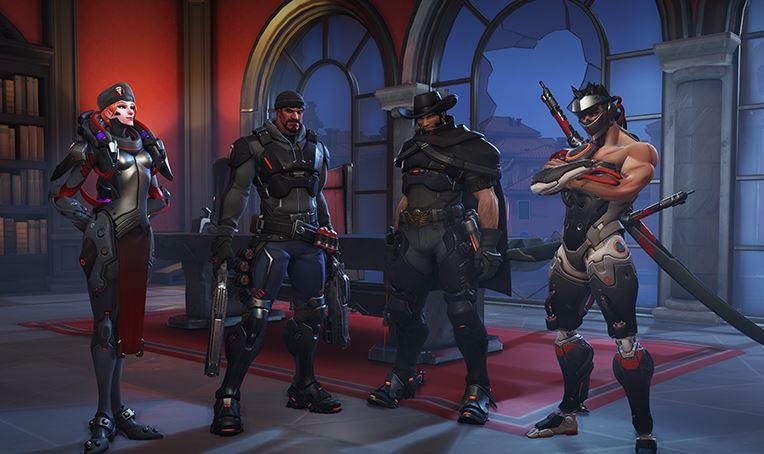Loot boxes ‘normalising gambling’ for kids, charity warns as Belgium bans them
Blizzard pulls paid-for loot boxes from Overwatch and Heroes of the Storm in Belgium after they were ruled to be gambling products

LOOT BOXES are "effectively gambling", a leading addiction charity has warned, as one of the world's biggest publishers pulls them from sale in Belgium to comply with local ruling that they were inappropriate for children.
“More than one in ten British children are effectively gambling in popular online games," GambeAware says, adding that loot boxes "may be normalising gambling for children."
Loot boxes are rewards in computer games that can contain a range of different items -- but the exact items inside are hidden from view until after they have been won or purchased.
Regulators in Belgium recently ruled that such boxes DID constitute gambling, and this Week Activision-Blizzard acted to "prevent Overwatch and Heroes of the Storm players located in Belgium from purchasing in-game loot boxes and loot chests with real money and gems."
"While we at Blizzard were surprised by this conclusion and do not share the same opinion, we have decided to comply with their interpretation of Belgian law," the company said in a forum posting announcing the change.
The previous Culture Secretary, Matt Hancock, described such mechanics as a “problem and wrong.”
Overwatch, developed by Blizzard Entertainment, has millions of fans across the globe, with eSports events that fans can place bets on“The role of Government is difficult but it comes down again to a duty of care," he said last month, shortly before being moved to the Department of Health.
A UK Gambling Commission spokesperson told The Sun that “the playing of a game for the chance of a prize of money/money’s worth is gambling under UK law... so, where in-game items that are derived from loot boxes can be readily exchanged for cash, the loot boxes themselves are likely to fall within the definition of gambling."
"The greater the availability, scale and sophistication of secondary markets where the in-game items can be sold the stronger the case [that loot boxes count as gambling] becomes," the Commission concluded.
Asked if the UK Government was considering a ban similar to that imposed in Belgium, a Department for Digital, Culture, Media and Sports spokesperson told The Sun: "The Gambling Commission has shown it will take action and prosecute unlicensed gambling that features in-game items. The Commission is also working with the video games industry to raise awareness of this issue and also find additional solutions."
Andrew Wilson, CEO of Electronic Arts whose FIFA Ultimate Team game was also hit by the ruling, said in May when the ruling first came down that "We don't believe loot boxes are gambling firstly because players always receive a specified number of items in each pack, and secondly we don't provide or authorise any way to cash out or sell items or virtual currency for real money."
MOST READ IN GAMING
Gambleaware urged further action, saying "we all share a responsibility to protect children from gambling-related harms and this includes the companies which profit from video games."
"Parents concerned their children may be gambling this way can find help and advice online at BeGambleAware.org."













